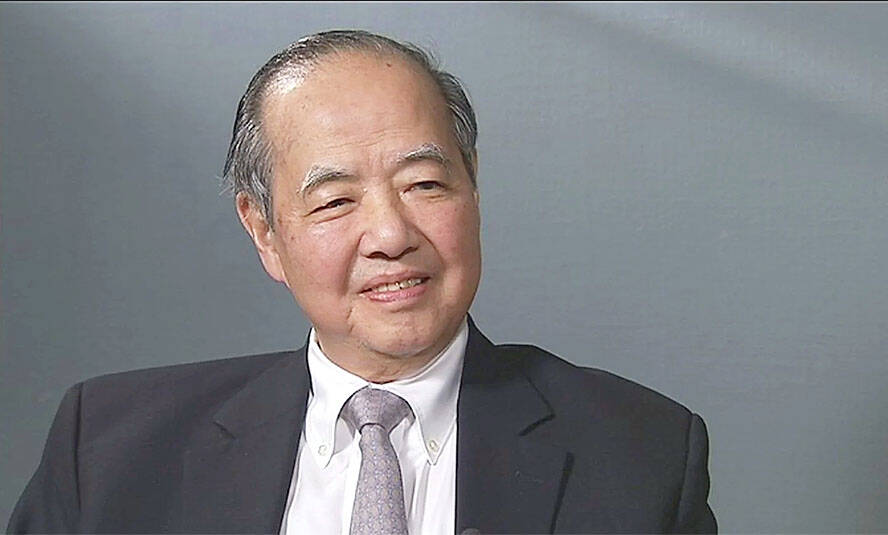Chinese-American physicist Tsung-Dao Lee, who in 1957 became the second-youngest scientist to receive a Nobel Prize, died Sunday at his home in San Francisco at age 97, according to a Chinese university and a research center.
Lee, whose work advanced the understanding of particle physics, was one of the great masters in the field, according to a joint obituary released Monday by the Tsung-Dao Lee Institute at Shanghai Jiao Tong University and the Beijing-based China Center for Advanced Science and Technology.
Lee, a naturalized U.S. citizen since 1962, was also a professor emeritus at Columbia University in New York.

Photo: grab from Nobel Web
Robert Oppenheimer, known as the father of the atomic bomb, once praised Lee as one of the most brilliant theoretical physicists of the time, whose work showed “remarkable freshness, versatility and style.”
Lee was born in Shanghai on Nov. 24, 1926, the third of six children to a merchant father, Tsing-Kong Lee, and a mother, Ming-Chang Chang, who was a devout Catholic, according to local newspaper Wenhui Daily.
He went to high school in Shanghai and attended National Chekiang University in Guizhou province and National Southwest Associated University in Kunming in Yunnan province.
After his sophomore year, he received a scholarship from the Chinese government to attend graduate school in the United States.
Between 1946 and 1950, he studied at the University of Chicago under Enrico Fermi, a Nobel laureate in physics.
In the early 1950s, Lee worked at the Yerkes Observatory in Wisconsin, at the University of California at Berkeley and at the Institute for Advanced Study in Princeton, N.J.
His research in elementary particles, statistical mechanics, astrophysics and field theory, among others, was standing out.
In 1953, he joined Columbia University as an assistant professor. Three years later, at age 29, he became the youngest-ever full professor there. He developed a model for studying various quantum phenomena known as the “Lee model.”
In 1957, Lee was awarded the Nobel Prize in physics together with Chen-Ning Yang for work exploring the symmetry of subatomic particles as they interact with the force that holds atoms together. At 31, Lee was the second-youngest scientist to receive the distinction.
He won many other accolades including the Albert Einstein Award in Science, the Galileo Galilei Medal and the G. Bude Medal, as well as honorary doctorates and titles from organizations around the world.
As China became more open to international exchanges in the 1970s, Lee returned to his home country on repeated visits to give lectures and encourage the development of sciences, according to state media.
On Monday, the topic of his death was trending on social media platform Weibo. Some users remarked on Lee’s American citizenship, while others honored his Chinese roots. China does not recognize dual citizenship.
One Weibo user praised Lee for helping to advance Chinese education and providing a role model for younger generations.

An essay competition jointly organized by a local writing society and a publisher affiliated with the Chinese Communist Party (CCP) might have contravened the Act Governing Relations Between the People of the Taiwan Area and the Mainland Area (臺灣地區與大陸地區人民關係條例), the Mainland Affairs Council (MAC) said on Thursday. “In this case, the partner organization is clearly an agency under the CCP’s Fujian Provincial Committee,” MAC Deputy Minister and spokesperson Liang Wen-chieh (梁文傑) said at a news briefing in Taipei. “It also involves bringing Taiwanese students to China with all-expenses-paid arrangements to attend award ceremonies and camps,” Liang said. Those two “characteristics” are typically sufficient

A magnitude 5.9 earthquake that struck about 33km off the coast of Hualien City was the "main shock" in a series of quakes in the area, with aftershocks expected over the next three days, the Central Weather Administration (CWA) said yesterday. Prior to the magnitude 5.9 quake shaking most of Taiwan at 6:53pm yesterday, six other earthquakes stronger than a magnitude of 4, starting with a magnitude 5.5 quake at 6:09pm, occurred in the area. CWA Seismological Center Director Wu Chien-fu (吳健富) confirmed that the quakes were all part of the same series and that the magnitude 5.5 temblor was

The brilliant blue waters, thick foliage and bucolic atmosphere on this seemingly idyllic archipelago deep in the Pacific Ocean belie the key role it now plays in a titanic geopolitical struggle. Palau is again on the front line as China, and the US and its allies prepare their forces in an intensifying contest for control over the Asia-Pacific region. The democratic nation of just 17,000 people hosts US-controlled airstrips and soon-to-be-completed radar installations that the US military describes as “critical” to monitoring vast swathes of water and airspace. It is also a key piece of the second island chain, a string of

The Central Weather Administration has issued a heat alert for southeastern Taiwan, warning of temperatures as high as 36°C today, while alerting some coastal areas of strong winds later in the day. Kaohsiung’s Neimen District (內門) and Pingtung County’s Neipu Township (內埔) are under an orange heat alert, which warns of temperatures as high as 36°C for three consecutive days, the CWA said, citing southwest winds. The heat would also extend to Tainan’s Nansi (楠西) and Yujing (玉井) districts, as well as Pingtung’s Gaoshu (高樹), Yanpu (鹽埔) and Majia (瑪家) townships, it said, forecasting highs of up to 36°C in those areas